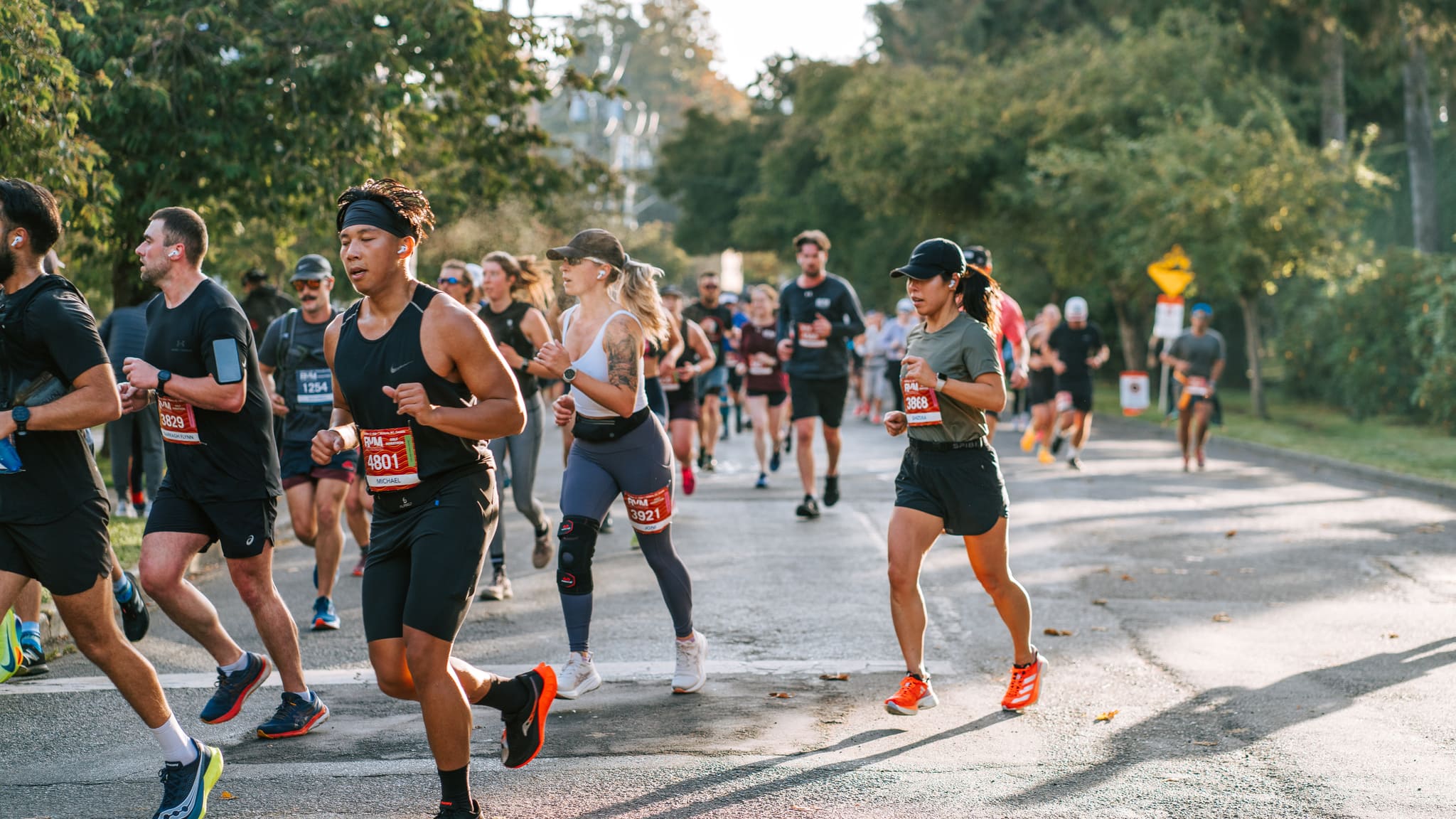If you're an endurance athlete, chances are you’ve avoided creatine, assuming it’s only for bodybuilders. But that assumption could be costing you performance!
Creatine isn’t just for bulking up—it plays a critical role in energy production and muscle recovery, both of which directly impact endurance performance. The International Society of Sports Nutrition found that creatine helps restore muscle cell health after endurance activity and improves anaerobic power, which could be beneficial for runners, swimmers, and cyclists (or triathletes doing all three) when it’s time to sprint to the finish.
Despite this, many coaches and athletes still dismiss creatine’s benefits for endurance. But the research tells a different story...
First, What is Creatine?
Creatine acts as a very rapid, but limited source of energy for very high intensity muscle contractions. Your body converts creatine into creatine-phosphate, which helps replenish adenosine triphosphate (ATP)—the fuel your muscle cells rely on.
The more creatine-phosphate available, the more immediate energy your muscles can produce—an advantage that’s now being recognized in endurance sports.
Most studies have focused on creatine’s ability to increase strength and power, but growing evidence suggests it offers endurance athletes significant benefits, too.
How Does Creatine Benefit Endurance Athletes?
1. Creatine increases your lactate threshold
A study on elite rowers found that creatine supplementation increased their lactate threshold—the point at which lactic acid builds up, leading to fatigue.
Why does this matter? A higher lactate threshold means you can sustain high-intensity efforts longer without slowing down, giving you an edge in endurance events.
2. Creatine helps you maintain a faster pace
Studies show that creatine supplementation lowers oxygen demand at a given exercise intensity, meaning the body shifts toward using the creatine-phosphate system instead of relying solely on aerobic metabolism.
Translation? You can maintain a higher pace for longer with less energy expenditure—a potential race-day advantage for athletes like runners, cyclists, and rowers.
3. Creatine boosts your muscle glycogen storage
Creatine has been shown to increase muscle glycogen stores by about 18% when taken consistently.
Since glycogen is the primary fuel for endurance athletes, this means more stored energy for long events, delayed fatigue and improved stamina, and faster recovery post-training
By maximizing glycogen reserves, creatine can help endurance athletes train harder and recover faster.
4. Creatine improves your recovery and reduces muscle damage
The International Society of Sports Nutrition found that creatine supplementation helps repair muscle damage, lower inflammation, and reduce oxidative stress.
This means you can train harder with less muscle soreness and a quicker recovery window—great news for endurance athletes out there training hard!
Does Creatine Cause Weight Gain?
One concern among endurance athletes is weight gain from creatine. While creatine can increase body weight by up to 1–3 kg (2–7lbs) due to water retention in the muscles, this effect is only temporary, and is mostly likely to occur if you opt for an initial loading phase.
Over time, creatine contributes to fat-free mass (muscle) without increasing body fat. The small increase in muscle mass can improve power output and recovery without negatively impacting endurance.
However, if you're ultra-concerned about weight gain from creatine, we suggest taking a look at our article: Can Endurance Athletes Use Creatine to Enhance Race-day Performance?
The only way to know if creatine works for you? Try it and see how you feel!
Add HMB to Supercharge Your Creatine

HMB is a naturally produced amino acid that is used to build, maintain, and repair muscles. Multiple studies have shown HMB to enhance endurance performance due to it protecting your muscles from damage, so you need less recovery time and can train at a higher intensity, more frequently.
When it comes to endurance, taking HMB has been shown to enhance performance in runners, cyclists and rowers. What’s more is HMB works independently to creatine, meaning combining the two (if you are okay with the additional muscle weight), could be an excellent supplement choice for an array of endurance sports.
Our recommendation? Check out out HMB+ Creatine and reap the performance benefits of both of these impressive ingredients!
Other Benefits of Creatine You Probably Don’t Know
Research on creatine is progressing every day, and new studies indicate that its benefits could go well beyond athletic performance. Interesting findings have shown it may:
- Help you sleep better
- Improve your memory and cognitive function
- Support your longevity and active aging
- Protect your brain health
- Make your bones stronger
Keep in mind that this is all emerging research and that more studies are needed to confirm creatine's benefits beyond athletic performance. If you're interested in learning more about the above-mentioned findings, check out article outlining 5 New Scientific Reasons You Should Be Taking Creatine Daily.
Key Takeaways
Creatine is no longer just for strength athletes! Endurance athletes can benefit, too—from increased lactate threshold and sustained pacing to better glycogen storage and faster recovery.
When paired with HMB, the benefits are even more pronounced! HMB protects against muscle breakdown, reduces recovery time, and works independently from creatine, making their combination a powerful tool for endurance performance.
If you learned something new from this article and are curious to know more, head to the Blonyx Blog or our growing list of weekly research summaries where we help you further improve your athletic performance by keeping you up to date on the latest findings from the world of sports nutrition.
– That’s all for now, train hard!
Looking for more ways to keep up with Blonyx?
Now, you can join the Blonyx Strava Club to track your progress, share training tips, and connect with athletes who share your athletic ambition.
You can also follow us on Instagram and Facebook for additional sports science information, announcements, exciting giveaways, and more!

